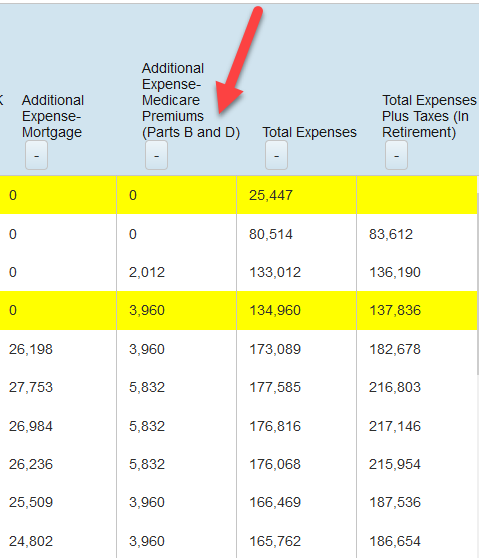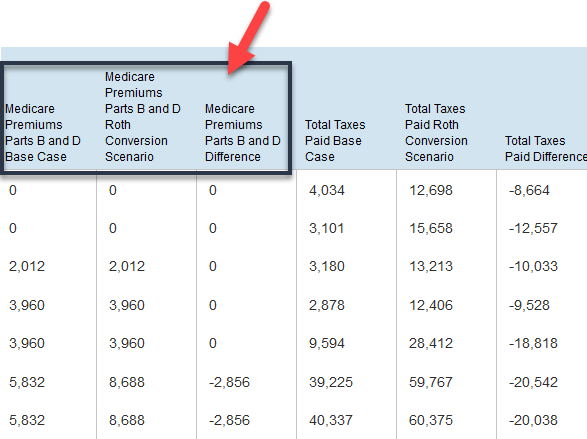Key Points:
- Many studies have found that people are spending a lot of their retirement income on medical bills.
- A large percent of those approaching retirement do not understand how Medicare premiums are charged and what Medicare covers.
- Setting aside money for long-term care is a very good idea if you don’t have long-term care insurance.
- You can use WealthTrace to estimate your Medicare premiums and health care costs in retirement and create your own retirement plan.
Are you diligently setting aside funds for your post-work life, ensuring that basic necessities like food, housing, transport, and medical costs are covered? Are you religiously saving at least 15% of your paycheck and planning on a withdrawal rate of no more than 4% from your savings? Even if you're ticking all these boxes, there might still be a chance that you're falling short in your savings, especially when it comes to medical expenses in retirement.
Medical Expenses in Retirement (Expected vs. Actual)
A recent study by the Center for Retirement Research at Boston College revealed that a considerable chunk of retirees' savings and Social Security benefits are being used for healthcare costs. So, how much of your retirement income is likely to be siphoned off for medical expenses? Let's delve into this a bit deeper.
Medical expenses are a significant retirement expense, especially for those who live past their life expectancy. Data from the 2018 Health and Retirement Study was used to evaluate what proportion of retirees' Social Security benefits and total retirement income was being spent on medical expenses, including Medicare premiums, prescription medicines, surgeries, and doctor visits. It turns out that it was more than most would have imagined.
The findings indicated that in 2018, about 12% of the median retiree’s total retirement income was directed towards healthcare costs. For these retirees, a quarter of their Social Security benefits were consumed by medical expenses. In fact, the median retiree shelled out about $5,200 per year on healthcare expenses, primarily on Medicare premiums.
As many people know, Medicare premiums are based on income. As of 2023, the lowest possible monthly premium for Medicare Part B, which provides medical insurance, stood at $165. The highest possible monthly premium is $561, which is due to the Income Related Monthly Adjusted Amount (IRMAA). Given the rising Part B premiums and out-of-pocket health expenditures, it's no surprise that many retirees are finding it challenging to make ends meet.
Furthermore, it appears that those preparing for retirement often underestimate the amount they'll end up spending on medical expenses later in life. According to the 2022 Fidelity Retiree Health Care Cost Estimate, an average retired couple aged 65 can expect to spend approximately $315,000 on healthcare expenses during their retirement.
Preparing For Medical Costs in Retirement
So, how can you effectively prepare for these impending medical costs? There are several strategies involving tax-advantaged accounts and insurance products that can help you get ready for healthcare spending in retirement.
First, it is important to have a retirement plan in place so you can project your savings, investment values, and costs through time. The WealthTrace Financial & Retirement Planner (sign up for a free trial here) will estimate your Medicare premiums through time based on your projected income every year.

WealthTrace also takes into account IRMAA rules when running Roth Conversion scenarios so you know how much your Medicare premiums will increase if you convert money to a Roth IRA.

Maximizing tax-advantaged investment accounts like your employer-sponsored 401(k) or a traditional or Roth IRA should be a priority. With a 401(k) and traditional IRA, the money is taxed only upon withdrawal during retirement. A Roth IRA, on the other hand, taxes money upfront, allowing your investments to grow tax-free over time.
If your employer provides a 401(k) match, make the most of it - it's essentially free money. If you qualify for a traditional or Roth IRA, consider opening one.
To cover the gap left by Medicare coverage, you might want to consider supplemental Medicare insurance, also known as Medigap. Provided by private insurance companies, Medigap helps cover Medicare co-pays, deductibles, and coinsurance. You must be at least 65 years old and enrolled in Medicare Part A (hospital services) and Part B (medical insurance) to qualify for Medigap.
Long-term care insurance is another product to consider, although they have gotten much more expensive over the past decade. This type of insurance covers nursing home stays, assisted living, and adult daycare expenses, which are typically not covered by Medicare and Medigap. Given the high cost of assisted living and nursing homes, it’s worth considering a long-term care insurance policy if you are below the age of 55, otherwise the premiums are usually too expensive for most people.
If long-term care insurance premiums are too expensive, it is important that you set aside money in a separate account for potential long-term care expenses in the future.

Model potential long-term care expenses in the WealthTrace Planner.
Bottom Line
When planning for retirement, be prepared for a significant portion of your retirement income to go towards medical bills. To get ready for this, consider leveraging tax-advantaged investment accounts like 401(k)s, traditional and Roth IRAs, and Health Savings Accounts. Additionally, Medigap or long-term care insurance can be a lifesaver if you anticipate substantial healthcare expenses during retirement.
Do you know if you will be able to afford medical costs in retirement or what your medical costs are projected to be? To find out, sign up for a free trial of WealthTrace and get started on your retirement planning.